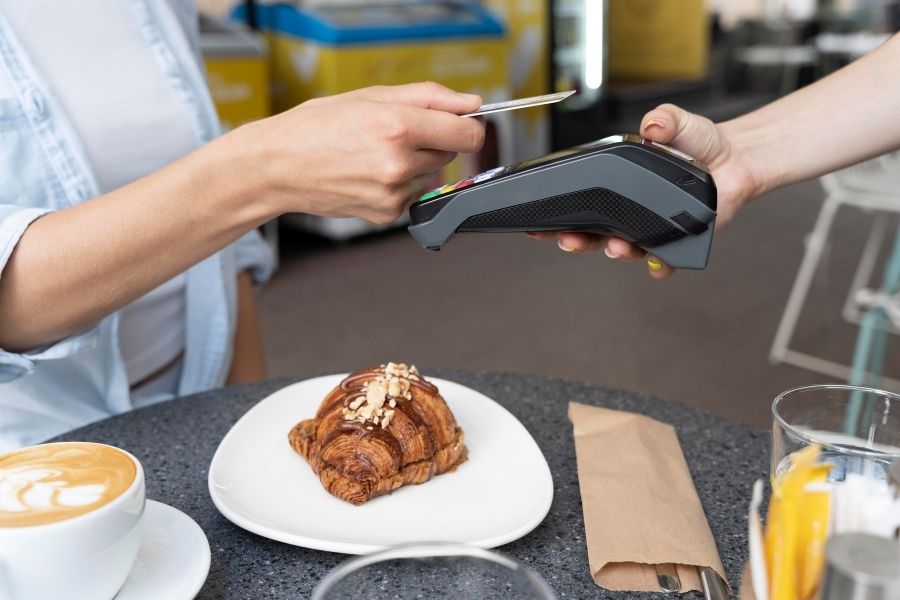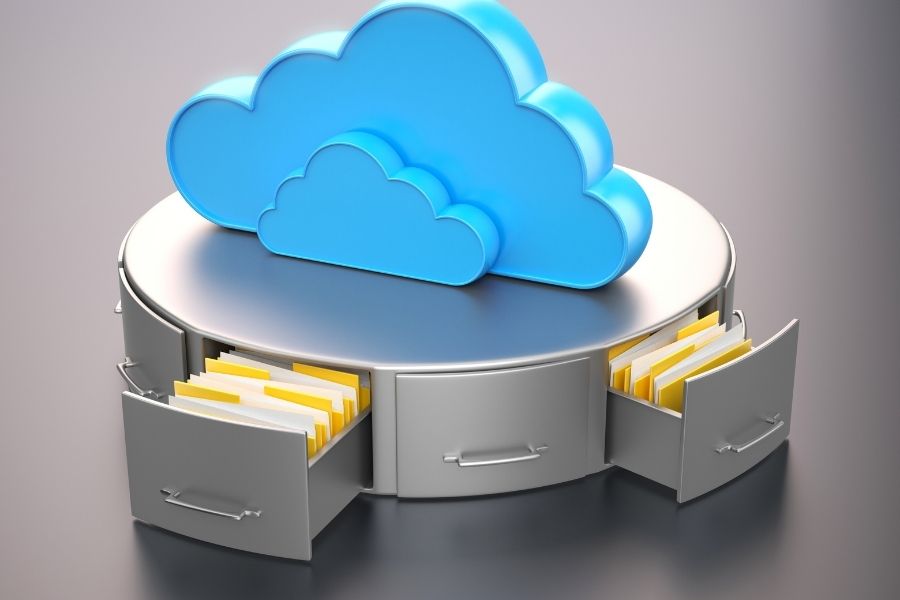The COVID-19 pandemic has significantly accelerated many digital transformations. In 2023, we will see many changes in technology and business innovation based on our experiences during the crisis. To thrive in the future, businesses must stay on top of these 7 strategic technology trends.
Artificial Intelligence (AI)
One of the greatest technology trends in 2021 is Artificial Intelligence (AI) as we expect to see huge demand and rapid growth of this innovation. The term refers to the ability of machines to interpret data and act intelligently. This means they can make decisions and complete multiple tasks based on existing data like humans do.
Daily activities such as opening your phone with Face ID, using your credit card to buy something, or asking Siri for a report of today’s weather are all AI-involved. So how does this technology work? For example, when you conduct a credit card transaction, AI allows your credit card company to determine whether the transaction fits your spending pattern and isn’t fraudulent. Leading transaction processor Mastercard has been using machine learning algorithms to handle its network’s 75 billion transactions a year.
In the retail industry, AI is adopted by many retailers in their Point of Sale (POS) systems. Not only does it increase productivity as well as automate manual processes, but it also helps manage the entire business operations. In addition, Facial Recognition is a great POS feature that can identify customers when they first walk in, track shoplifters, recognize customer emotions, etc.
AI technology has been deeply embedded in your daily life, and it’s here to stay for many years to come.
Virtual reality (VR) & augmented reality (AR)
Augmented reality and virtual reality are leading technology trends that have grown significantly in 2020. These innovations are now part of everyday life for all industries. AR and VR technologies enable an impressive transformation across every sector, from AR avatars, remote assistance, facial recognition, to mobility AR, etc. the demand for AR and VR will accelerate with the growth of the 5G infrastructure to expand the internet bandwidth.
Sephora, a powerful beauty company, is joining many other corporates in recognizing the importance of AR in the beauty industry. The Sephora Virtual Artist app is able to scan your face, figure out your facial features for product placements, and then let you try on different makeup looks. Furthermore, it offers “virtual tutorials” that show you how to contour, draw eyebrows, or create winged eyeliners.
Mobile application
According to Adobe Analytics, mobile consumers spent $3.6 billion on this year’s Black Friday, representing 40% of total online spend. For that reason, businesses are starting to streamline their mobile commerce experience and seamlessly connect it to physical stores. By having customers scan QR codes with their mobile phones, merchants can create contactless interactions across multiple channels and turn the consumer’s device into a POS terminal. Many retailers, such as Circle K, have updated their shopping experience by implementing QR code-based shopping at the fuel pump.
An interesting fact about a mobile application is that it allows retail businesses to interact with their consumers directly. Maintaining customer loyalty is important since today’s shoppers aren’t afraid of trying new brands or switching to products from your competitor. Apart from this, features like in-app purchases, notifications, and customized promotions make a great impact on customers compared to social media advertisements, email marketing, or other traditional marketing methods.
Cybersecurity
Cybersecurity is another technology trend that is worth noticing. According to Interpol, the pandemic has provided an unprecedented opportunity for cybercriminals to increase their attacks. However, most companies overestimate their cybersecurity performance, with only 24% meeting the bar. Therefore, companies need to identify current IT security weaknesses and improve cybersecurity maturity.
A company’s active directory (AD) infrastructure is also a vulnerable element for hackers to approach as it controls user authentication rights as well as network access. A cybercriminal could then take over the CEO’s mobile phone, usurp his/her identity, and have access to confidential internal information. It is advisable to tailor security to the business’s AD, invest in monitoring to detect suspicious activities in real-time, and carefully check all AD breaches.
5G
The development of 5G technology has been motivated by the need for higher-speed internet and a transition to well-connected homes, smart cities, and autonomous mobility. With widespread 5G connectivity just around the corner, businesses of all sizes are preparing for the next major advancement in mobile technology. 5G significantly improves the speed, performance, and reliability of mobile phone usage. Some estimates predict that 5G can be roughly 100 times faster than the earlier 4G. The mobile network also offers reduced latency, making it possible to quickly share data, erase processing delays, and ensure factory systems can react in real time.
In Singapore, IBM has teamed up with Samsung and M1 to test 5G manufacturing use cases. The aim is to test and improve 5G-enabled industry 4.0 solutions that can be applied across different industries. Moreover, the group is also testing the capability of augmented reality in boosting productivity and quality.
Within the next 12 months, we are sure to see how this technology trend will benefit the mobile workforce.
Digital health
Due to COVID-19, digital health has been considered one of the most important technology trends for the next year. In care and assisted living facilities, the demand for robot automation has strikingly increased when interacting with the most vulnerable members of society – the elderly. Instead of completely replacing human interaction with caregivers, these robotic devices are expected to provide new communication methods, such as 24/7 in-home help or companionship when nursing staff cannot visit patients’ houses during this pandemic. As for pharma and biotech corporations, they use machine learning algorithms to shorten the drug development cycle. Recently, researchers in the US have developed an AI model that precisely identifies and diagnoses COVID-19 just by the sound of a cough.
Telemedicine is another health innovation that has tremendously escalated. It is the practice of clinicians seeing patients virtually rather than in physical clinics or hospitals. This indicates that remote consultations are possible but also easy and preferable.
Aside from that, digital health VR is also expected to climb up to $2.4 billion by 2026. This technology has shown its potential to eliminate the need for several medications and surgeries as it can be used to treat chronic pain, anxiety, or even post-traumatic stress disorder.
Workforce technology
Absenteeism has cost companies worldwide hundreds of billions of dollars per year. Retail merchants still strongly depend on face-to-face interactions between customers and in-store staff in the retail sector. However, COVID-19 has made this rather challenging since many shoppers are hesitant to visit brick-and-mortar stores. 88% of retailers would rather overschedule or add more labor than being understaffed, which eventually leads to high labor costs and lower business profits.
Fortunately, workforce management technologies can help with this dilemma by instantly responding to activity peaks and employee absenteeism. A good example of this is Andjaro, a staffing optimization platform. It allows business owners to post staffing needs and share employment availability as well as match managers with potential employees. Additionally, Andjaro can even generate legal documents and payroll information.
On a final note
To build powerful new digital capabilities and successfully retool for 2021, businesses would need certain innovative integrations. By taking advantage of the 7 trustworthy technology trends, we hope that your business will be able to build new digital capabilities and effectively retool for the world of tomorrow. Especially in the retail world, it is essential to stay up-to-date on the latest technology trends in order to keep your business stand out among other competitors. One of the best things you can do is to opt for a feature-rich POS system like ConnectPOS, one of the leading POS solutions for omnichannel businesses. Our world-class system with cutting-edge technology is sure to meet your expectations of a superb POS system. Book a 14-day free trial now to experience various amazing features!
ConnectPOS is a all-in-one point of sale solution tailored to meet your eCommerce POS needs, streamline business operations, boost sales, and enhance customer experience in diverse industries. We offer custom POS with features, pricing, and plans to suit your unique business requirements.




